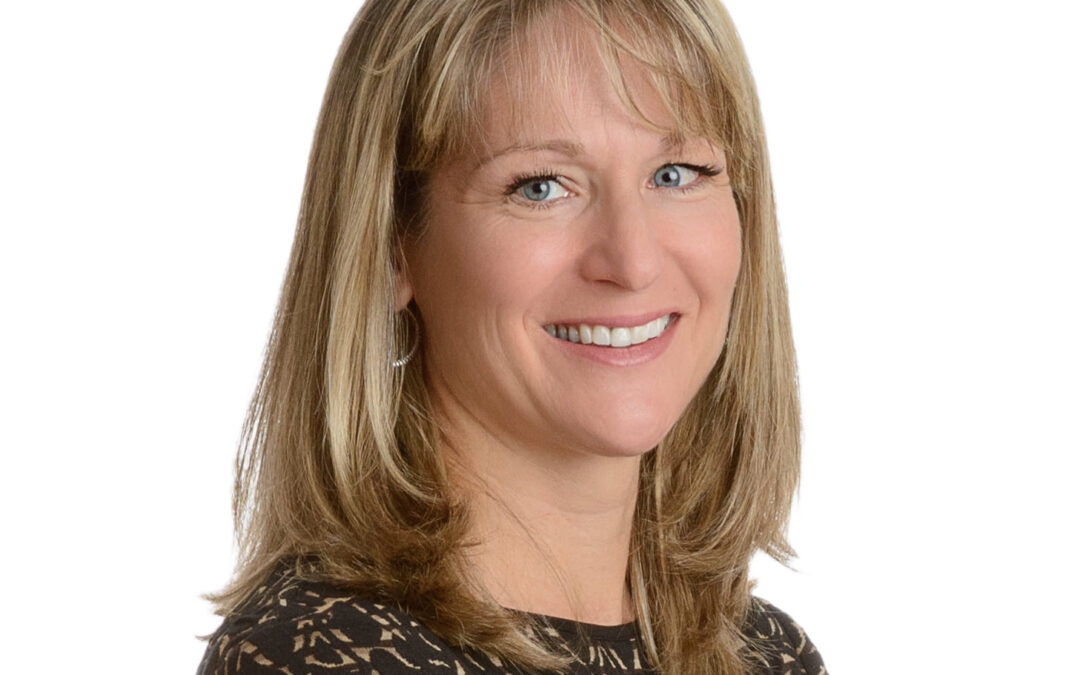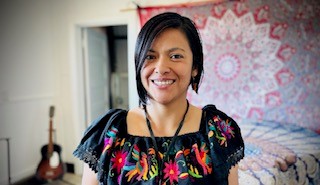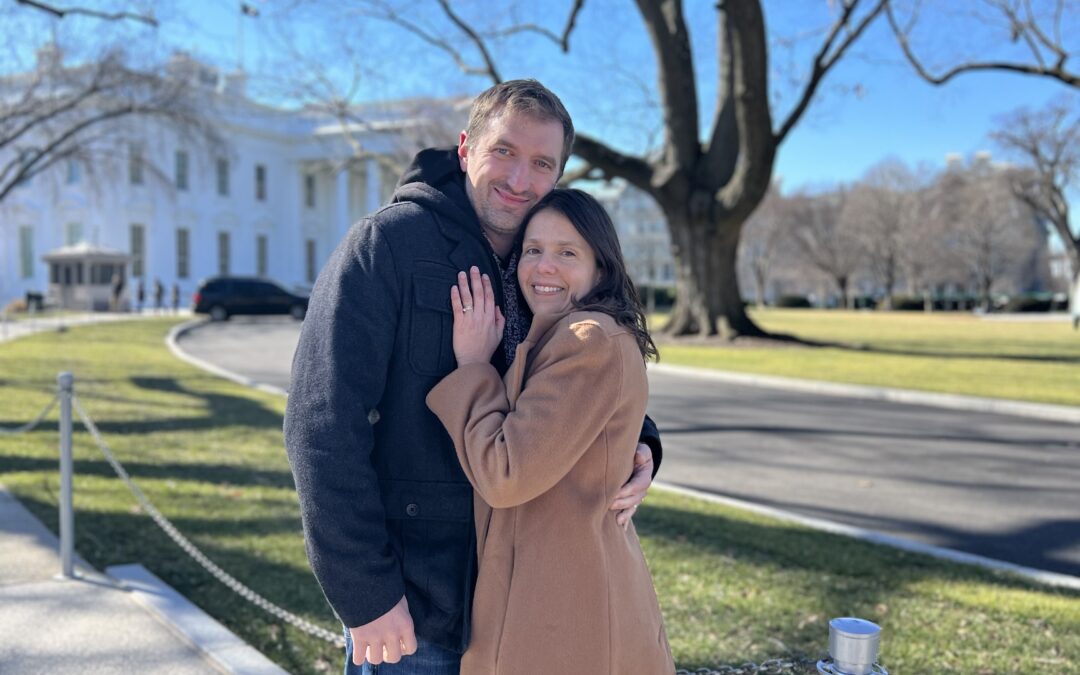
by Michelle | Jan 16, 2024 | Eat Well, Featured, Move Well, Work Well
Tillamook County Wellness was launched in 2016 as a “Year of Wellness” with a simple goal – to encourage people to make small changes to become healthier. After a successful kick-off year, the Wellness Advisory Committee decided to ride the wave of community support for this grassroots population health improvement initiative and set a ten-year goal to reduce the percentage of people in Tillamook County who were at risk for developing Type 2 Diabetes. This ambitious goal had one significant challenge. How would we track our efforts to determine if we were having an impact? We can’t measure what doesn’t happen. Or can we?
In 2016, the percentage of adults in Tillamook County living with a diagnosis of diabetes was 12%. In 2023, the same source for this data (County Health Rankings), reported Tillamook County rates at 8%. Another bright spot for comparison is that we began our journey with a health ranking in the bottom third of Oregon counties. Today we boast a #12 county health ranking status out of 35 ranked counties in the state. Anecdotally, we are making progress. More concretely, we have built more trusting relationships, established policies, programs and strengthened partnerships in ways that are making Tillamook County a healthier place to live, work, play, learn and age.
So, who is Tillamook County Wellness and what exactly are we doing to improve health and quality of life in Tillamook County? It’s all of us and it’s everything. This is what collective action looks like. It takes everyone thinking, working and living together intentionally in ways that promote health and well-being.
In 2023, 34 community and government organizations, businesses, schools, healthcare partners and many, many volunteers all worked together to move the dial on health. Grants were written and awarded for building a sustainable healthcare partner network, implementing a health literacy campaign and partnering to hold a bike rodeo where more than 30 bikes were given away to area families. Walking groups, led by volunteers, met weekly throughout the county. Hundreds of vegetable seeds were distributed so our local gardens can “Grow Well.” Free wellness classes were held in English & Spanish for everything from how to prevent and manage chronic diseases like type 2 diabetes to how to manage personal finances.
Upstream efforts to build more housing, increase the availability and affordability of childcare and expand education pathways for higher income-earning potential are just some examples of how partners are working to create the conditions for a healthier community. Changes to the built environment such as community walking paths, segments of the Salmonberry Trail and a bike pump track are other examples of work being done to make it easier for people to get and stay healthy. Area schools work with Food Roots to teach kids where their food comes from and how to cultivate and cook it. Nutritious recipes with easy-to-find, inexpensive ingredients are being shared and devoured based on the social media stats behind those shares.
The point here is that wellness is more than a number on the scale or a medical record. Wellness starts with people’s ability to have a safe place to live, healthy food to eat, an education that leads to a living wage job, a community that has adequate supports for mental health, addiction, and for families with loved ones experiencing disabilities or different abilities.
Often, when we think about the challenges that negatively impact community health, we wonder, “why isn’t someone doing something about this?” Working in community well-being for a decade, it is clear to me that much is being done and a lot of positive changes are resulting from those efforts. The organizations responsible for much of this work are often constrained by lack of funding, staff or volunteers. You can make a difference by making donations to your favorite charities, getting involved as a volunteer, and advocating for the good work within your family and peer circles. After all, giving back is good for your health.
Written By Michelle Jenck, M.Ed.,
To learn more, get involved and donate, visit www.tillamookcountywellness.org or email us at info@tillamookcountywellness.org.

by Guest | Nov 22, 2023 | Being Well, Featured, Uncategorized, Work Well
For many people, the holiday season is filled with opportunities to gather with family and friends. Some gatherings may have alcoholic beverages as a drink option for adults who are the legal age to consume alcohol. If you are the legal age to consume alcohol and are offered an alcoholic beverage, I encourage you to take a moment to ‘Rethink the Drink’. Rethinking the drink will allow you time to reflect on the role alcohol plays in your life, plays in the lives of those around you, and will allow you time to consider if there are any changes that you would like to make concerning alcohol.
Drinking alcohol can be harmful to a person’s health. Alcohol use has both short-term and long-term health risks. Examples of short-term health risk include poisoning, accidents, and unsafe sexual behavior. Examples of long-term health risk include memory problems, increased risk of cancer, weakened immune system, and mental health problems. According to the Oregon Health Authority (OHA), “More than 2,000 people in Oregon die from alcohol-related causes every year”. The OHA adds that the number of people who die from alcohol-related causes is three times higher than the number of people who die from other drug overdoses. To address this concern, the OHA created a campaign called ‘Rethink the Drink’. The target audience for this campaign are adults who are at the legal age to consume alcohol. One of the main components of this campaign is a website. People who visit the website can learn about excessive alcohol use, health consequences of excessive alcohol use, and learn where to get support for excessive alcohol use. The campaign’s website is www.rethinkthedrink.com.
My top takeaways from this campaign are:
- Excessive drinking includes underage drinking, drinking while pregnant, binge drinking, and heavy drinking. According to the OHA, 1 in 5 people in Oregon drink excessively. Excessive drinking increases a person’s risk of an alcohol use disorder, certain cancers (colorectal, prostate, breast, cancers of the mouth, etc.), heart disease, and liver disease.
- Excessive drinking includes both binge and heavy drinking. Binge drinking for a male is five or more drinks on one occasion. Binge drinking for females is four or more drinks on one occasion. Heavy drinking for a male is fifteen or more drinks per week. Heavy drinking for a female is, eight or more a drinks per week.
- Not all drinks have equal alcohol content. Alcohol calculators can help a person understand how many standard drinks are in each drink. For more information about standard drinks, review the National Institute on Alcohol Abuse and Alcoholism at www.niaaa.nih.gov.
- A person can become more aware of their behaviors involving alcohol by utilizing the track, count, and shift method. Step 1, track the number of drinks, step 2, calculate the total alcohol in each drink, and step 3, get advice and/or shift to healthier options.
- Alcohol treatment services are available to help individuals explore how drinking impacts their life. The campaign’s website has an alcohol treatment navigator link. This link will take you to the NIH’s National Institute on Alcohol Abuse and Alcoholism website. On the website community members identify resources in their area. The resources featured on the website include alcohol treatment programs, counselors, therapists, and doctors. One local provider located on the navigator is the Tillamook Family Counseling Center, to learn more call (503) 842-8201.
I encourage adults to spend time this holiday season having conversations with youth about the dangers of excessive drinking. These conversations can make a big impact in the prevention of underage alcohol use.
Tips for having conversations with youth about alcohol:
- Learn about the harms of underage drinking. To learn about this topic, I recommend the National Institute of Health’s (NIH) website to review ‘Get the Facts About Underage Drinking’. The website can be accessed at www.niaaa.nih.gov.
- Visit the Substance Abuse and Mental Health Services Administration’s (SAMHSA) website and review the ‘Talk. They Hear You’ campaign. This campaign can be found at www.samhsa.gov.
- Have conversations with youth early and continue the conversations into early adulthood.
- Integrate topics about alcohol into everyday conversations.
- Educate youth on the harms of underage alcohol consumption.
- Help youth feel confident declining alcohol by roleplaying scenarios that they may be offered alcohol.
- Let youth know that they can come to you if they have questions about alcohol.
Author: Janeane Krongos, Tillamook Family Counseling Center
Other wellness questions? Email us at info@tillamookcountywellness.org. For more local health and wellness information, visit www.tillamookcountywellness.org or follow Tillamook County Wellness on Facebook and Instagram.

by Guest | Nov 16, 2023 | Being Well, Featured, Uncategorized, Work Well
Angelica immigrated from Mexico to America in 2008, seeking a better life. Starting as a seasonal harvester, she soon discovered the many barriers between her and her goals. Realizing she was spending the majority of her wages to cover rent; she became determined to find a path to becoming a homeowner.
Unsure where to start, she went to her local credit union, began asking questions, seeking assistance. She learned that her first step was to build up credit, a process that took her seven months to be in good standing. Another issue arose, however, as her immigration status became another barrier to home ownership. Angelica was persistent with her credit union to provide a home loan, which she received after just weeks of deliberation.
Seeking to reduce her 30-year mortgage, Angelica made a commitment to pay off the house quickly, forcing her to cut expenses, save any funds, take on extra work and continually improve her credit. Through such planning, the house was paid in full in just four years.
Angelica shows that resilience and determination are fundamental traits to using existing systems to one’s benefit. By asking questions, getting advice from people with experience, and careful budgeting, anyone, no matter their financial status, can make their dream of home ownership, or finding financial freedom, a reality.
To watch Angelica’s interview visit https://tillamookcountywellness.org/work-well/financial-wellness
For more information on upcoming classes, visit our website at https://tillamookcountywellness.org/work-well/financial-wellness and follow Tillamook County Wellness on social media.

by Michelle | Oct 5, 2023 | Being Well, Featured, Work Well
To promote the well-being and growth of children, access to regular physical activity is essential. Over the past three years, Tillamook County Wellness’ Health Promotions Committee has been offering fun, physical activity programs designed to introduce families to local outdoor recreational opportunities. Where participants qualify for exciting prize drawings.
Historically, we’ve collaborated with schools, local libraries, the Oregon Food Bank, and various community partners to promote these activities. Thanks to the generosity of our donors, we’ve been able to incentivize participation through rewarding prizes.
Tillamook County Wellness would like to encourage more family participation, especially among families with children aged 0-17 years. Since younger children might not have the means or easy access to parks and other physical activity locations on their own, they depend on older family members for transportation and motivation. This realization has led us to develop a more deliberate strategy for engaging families in 2024.
We plan to identify and acquire participation prizes that are specifically appealing to families. The Kiwanis Community Giving Award Funds will play a crucial role in enabling us to achieve this goal.
Tillamook County Wellness extends its heartfelt gratitude to be the recipients of the Kiwanis Community Giving Fund. Their support is invaluable in helping us achieve our mission of promoting health and well-being in our community to young children in Tillamook County.
Picture of: Janeane Krongos of Tillamook Family Counseling Center and Ron Rush of Tillamook Kiwanis Club
Tillamook County Wellness is a community-driven initiative with a primary focus on reducing the risk of chronic diseases by promoting healthy behaviors from an early age. We believe that by making healthy choices more accessible and enjoyable, we can cultivate thriving and vibrant communities.

by Guest | Sep 3, 2023 | Being Well, Featured, Work Well
Each year, lives are lost due to suicide. Suicide is an intentional self-inflected death. This cause
of death is complex and is typically a result of many factors in a person’s life. These factors are
often referred to as risk factors. A risk factor is a condition, characteristic, or attribute that can
increase the risk of a negative outcome. Examples of suicide risk factors include: a previous
suicide attempt, access to lethal means, social isolation, lack of access of care, problem
gambling, substance use disorder, loss of a loved one (especially by suicide), and a stigma of
discussing mental health. If you would like to learn more about risk factors, I recommend the
CDC’s Risk and Protective Factors, this resource can be accessed on the CDC’s
website(www.cdc.gov).
Suicide is a leading cause of death in the United States and in Oregon. According to the Centers
for Disease Control and Prevention (CDC), in the year 2021, suicide was the 11th leading cause
of death in the United States. The CDC’s data shows that in the year 2021 there were 48,183
suicide deaths in the United States. For more information about national suicide statistics visit
www.cdc.gov. According to the Oregon Health Authority (OHA), in the year 2021, suicide was
the 10th leading cause of death in Oregon. OHA’s Center for Health Statistics data shows that
893 Oregonians died by suicide in the year 2021. For more information the state level suicide
statistics visit www.oregon.gov.
The good news is that this cause of death is preventable. One way to prevent suicide is to
increase protective factors. Protective factors are a characteristic, attribute, or condition that
can decrease a negative health outcome. Protective factors include: a connection with others,
access to mental health care, access to basic needs, reduced access to lethal means, coping
strategies, and problem-solving skills. For more information about protective factors, I
recommend the American Foundation for Suicide Prevention’s (AFSP) Risk factors, Protective
Factors, and Warning Signs, this resource can be accessed on the AFSP website (www.afsp.org).
If you would like to learn more about suicide prevention, I recommend attending a Question,
Persuade, and Refer (QPR) Gatekeeper training. This training is an evidence-based suicide
prevention training that has been used worldwide. In this training participants learn about
suicide, suicide warning signs, conversations tips, and the three steps of QPR. After the
completion of the training participants will receive a certificate, QPR Institute booklet, and
other relevant prevention information.
Since the year 2020, the Tillamook Family Counseling Center (TFCC) has offered the QPR
Gatekeeper training to community members every other month (or as requested). From
September 2020-August 2023, TFCC prevention staff has offered 32 QPR Gatekeeper trainings
(29 in English and 3 in Spanish) and have trained close to 300 community members. This past
year, TFCC has begun to offer QPR Gatekeeper trainings in the Spanish language. If you would
like to learn more about this new offering, please contact Angelicao@tfcc.org. TFCC will present
a virtual English QPR Gatekeeper training on September 11th from 10-11:30AM. If you would
like to register for this training email me at Janeanek@tfcc.org.
If you are having thoughts about suicide, you are not alone, help is available. For local crisis
support call the Tillamook County 24/7 crisis support at (503)842-8201. For national support
call the 988 Suicide and Crisis Lifeline at 988 or the Suicide Prevention Lifeline at (800)273-
8255.
If you should have questions about this blog. Please feel free to contact Janeane at
Janeanek@tfcc.org.
AUTHOR: Janeane Krongos, Tillamook Family Counseling Center, CPS
For more local health and wellness information, visit www.tillamookcountywellness.org or follow Tillamook County Wellness on Facebook, Instagram and Twitter.

by Guest | Aug 18, 2023 | Featured, Work Well
When rushing into life-altering events, it can be hard to keep up momentum or recover when you trip, experiences that Briar and Micah Smith know all too well. Married at age 20 and having their first child within a year, they found themselves a few years later $32,000 in credit card debt and dangerously close to housing foreclosure. Even Micah’s 50-hour work week and Briar’s full-time and part-time jobs couldn’t compensate for these issues. Briar, shocked by the revelations revealed by her partner, decided they would work together and find a solution.
They would squeeze in extra jobs to keep pace with their bills and used Briar’s tip money whenever possible. Micah and Briar leaned in and shared the financial responsibilities, held each other accountable, had grace and mercy for one another, and worked harder then ever! Briar took on a second part-time job in addition to full-time and other part-time positions. Although they initially didn’t like the idea of a budget, they reframed it from being a restriction of spending to a method of directing funds to their desires. Financial classes aided them, as they became more organized.
Working within their constraints often meant making self-sacrifices and seizing on opportunities. To make sure their kids ate fruits and vegetables, they would eat simple meals of ramen and peanut butter sandwiches. Whenever invited for meals with parents, they would accept the food and take to-go boxes. They learned not every decision had to take effort. Automatic transfers into retirement funds and designated checking or savings accounts relieved them of constant worry. To achieve their financial goals, the Smiths needed to plan wisely, recognizing they wouldn’t stick to their plan if everything was manual.
Ultimately, consistent communication and working as a team was key. Micah hadn’t told Briar he had a credit card when he revealed the debt. Now they discuss their financial goals and any unusual transfers, making sure they’re on the same page. The Smith’s hit the ground running and nearly trampled, but with enough coordination and education, they were able to stay afoot. Watch their story here: https://youtu.be/pPCL_chAXeU.
Financial Beginnings, a new local source for free financial education classes, offers the same opportunities that helped Briar & Micah. Easy-to-follow and designed to meet individual needs regardless of ethnicity, age or education level, there is something for everyone. Classes are currently happening through Helping Hands and at Tillamook Bay Community College, with programming coming to area schools in the Fall. Additional classes are to be scheduled by other partners soon.
Financial education isn’t just for 20-somethings. It is for anyone seeking stability and freedom from financial stress. Find your momentum today.
AUTHOR: Andy Jenck, Urban Rural Action Volunteer
For more information, visit our website at https://tillamookcountywellness.org/work-well/financial-wellness and follow Tillamook County Wellness on social media.






